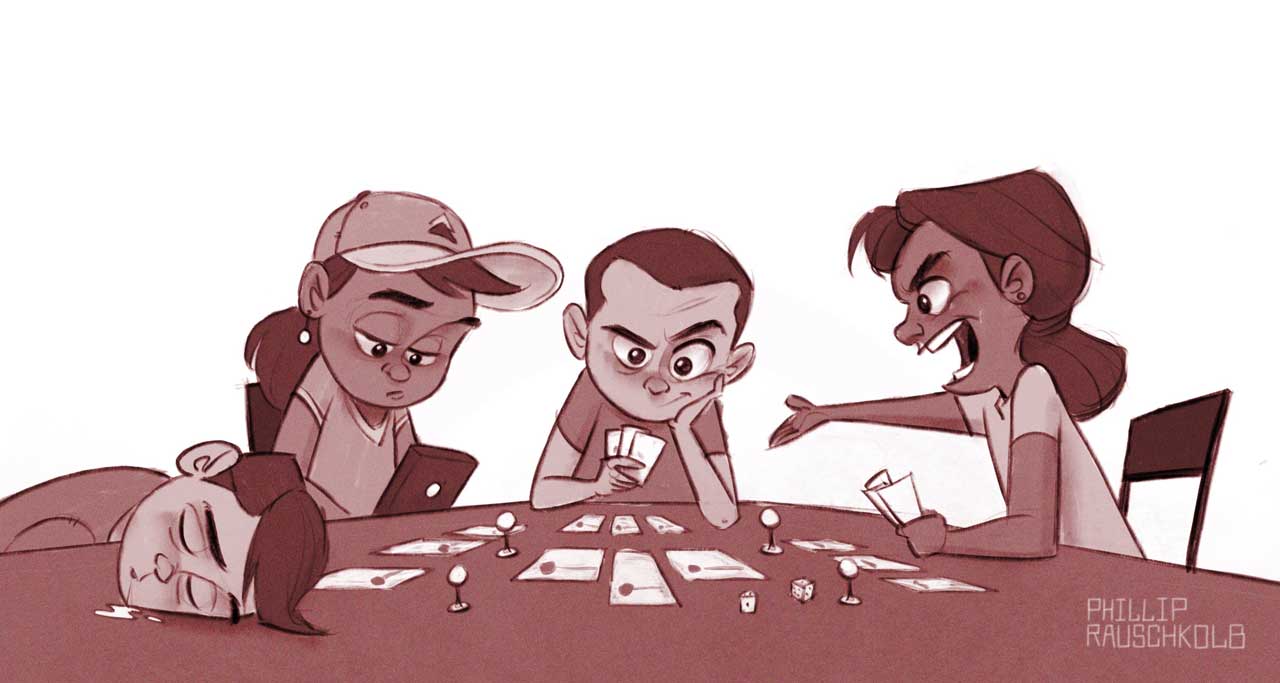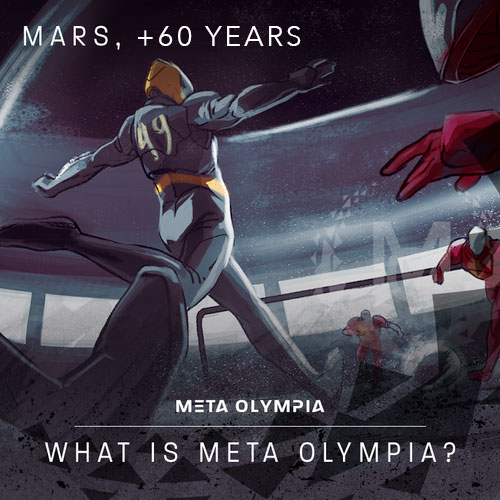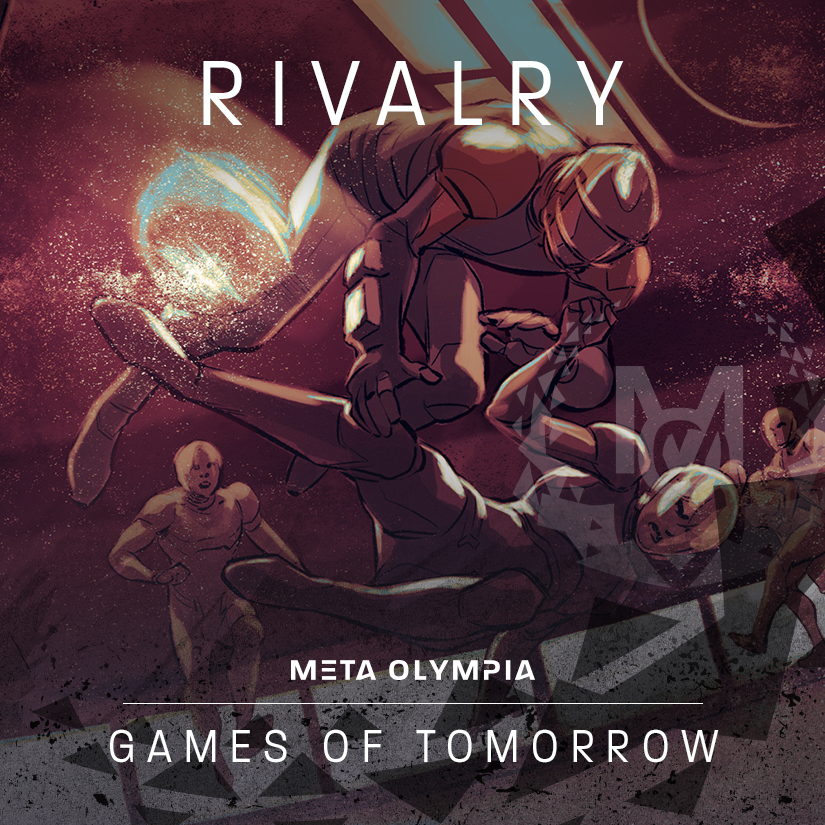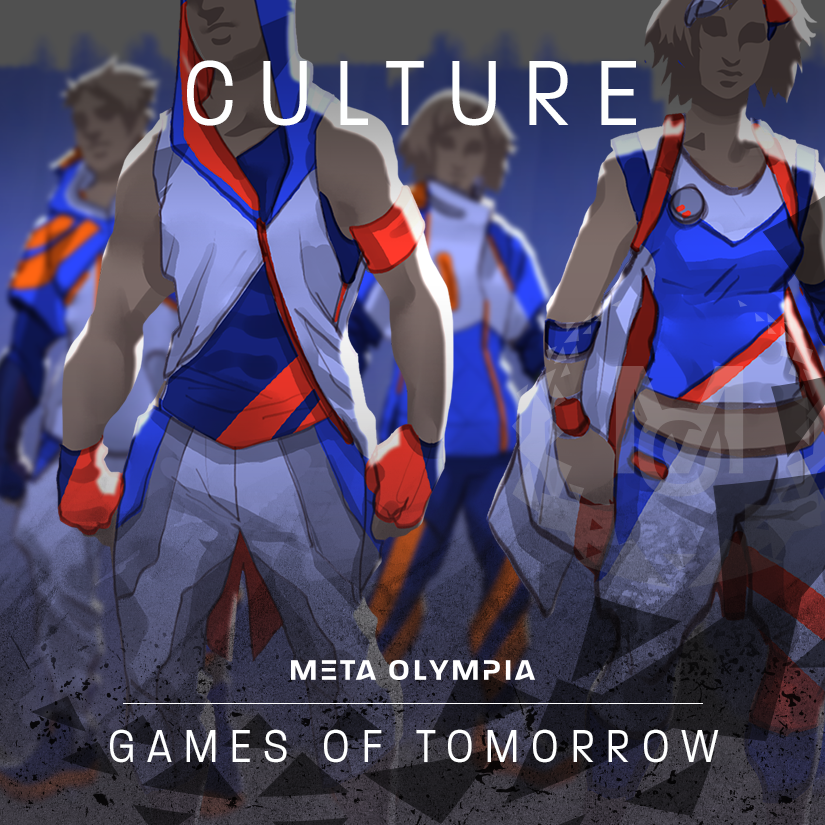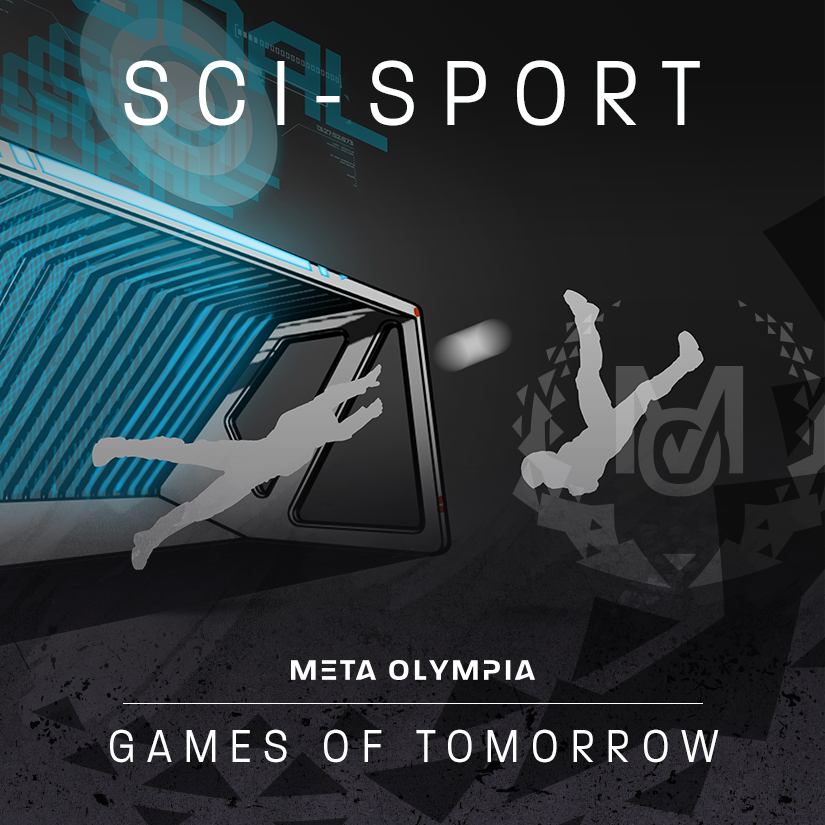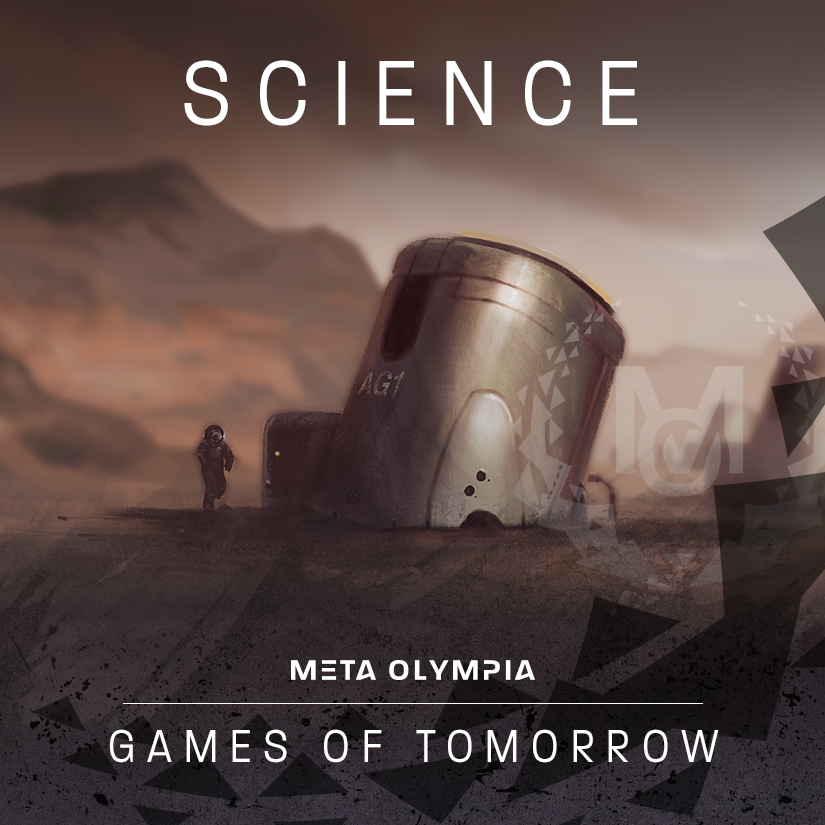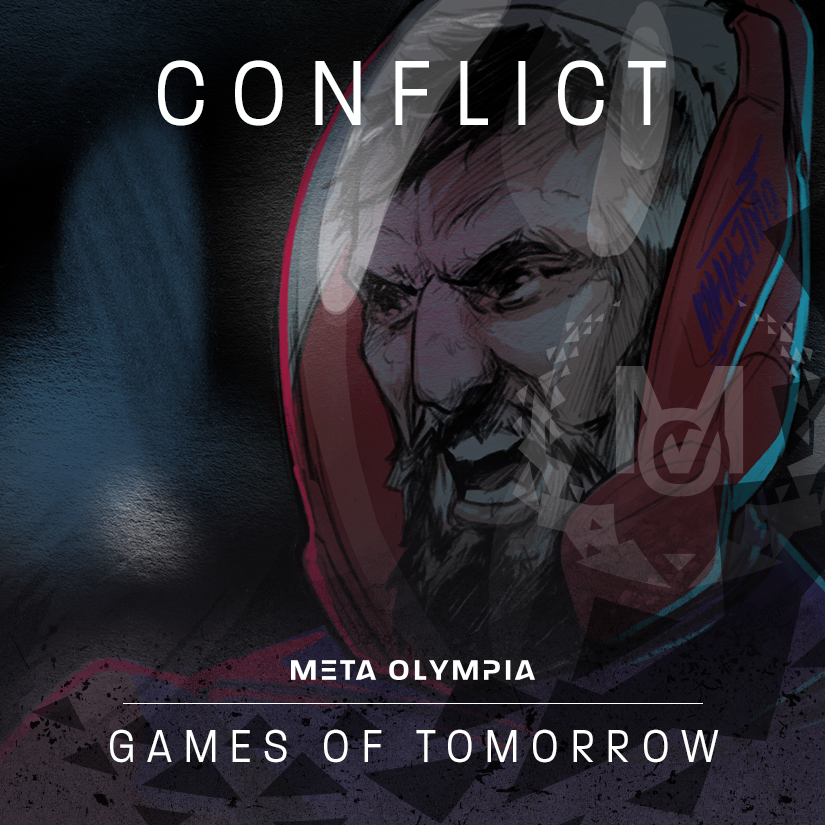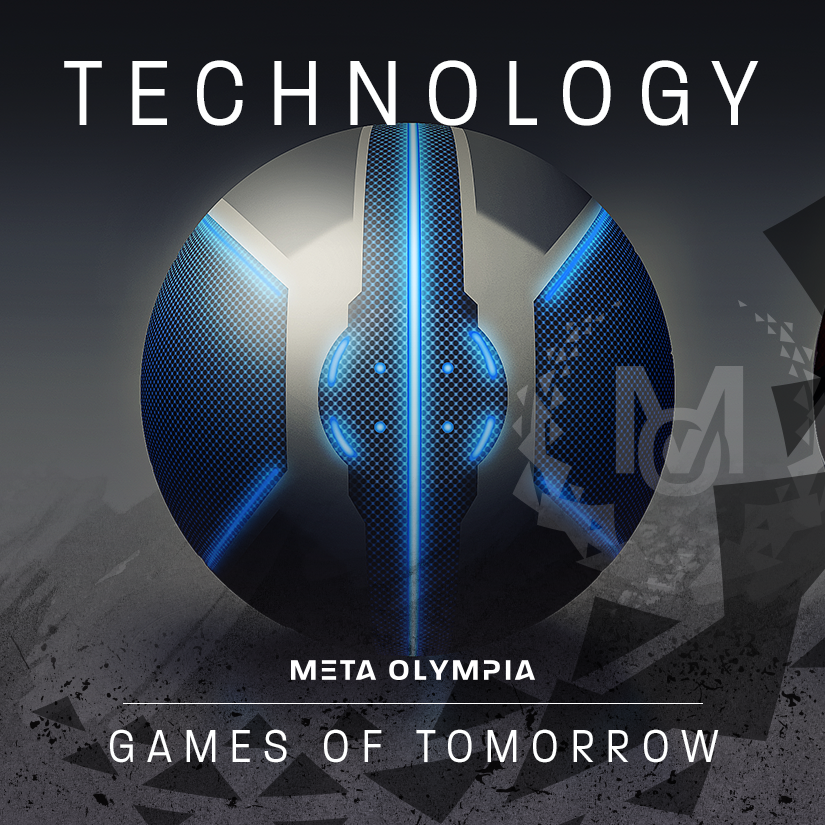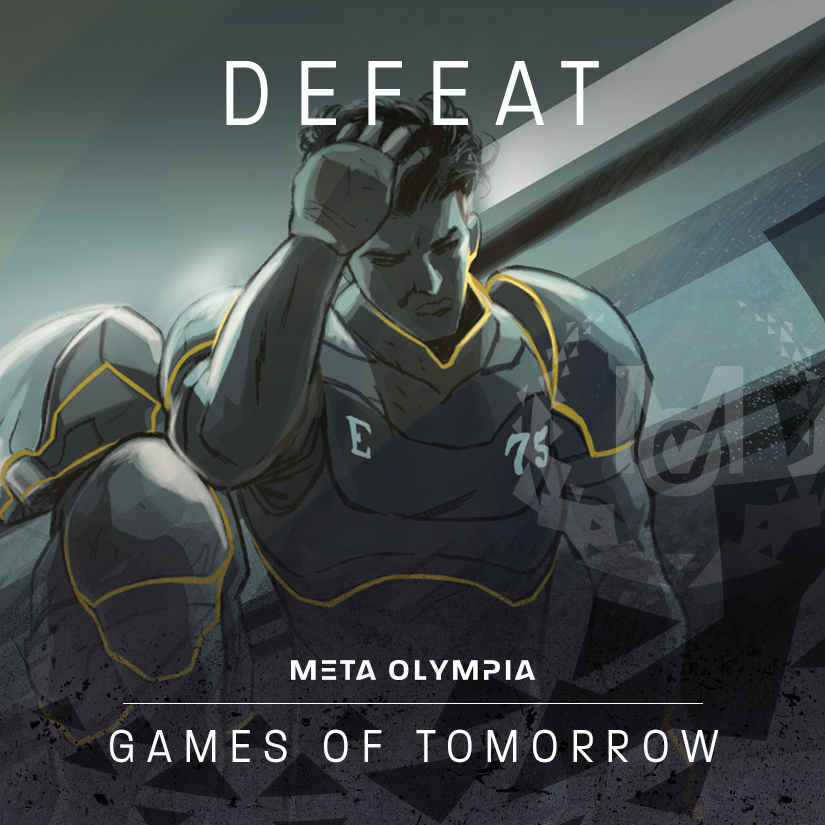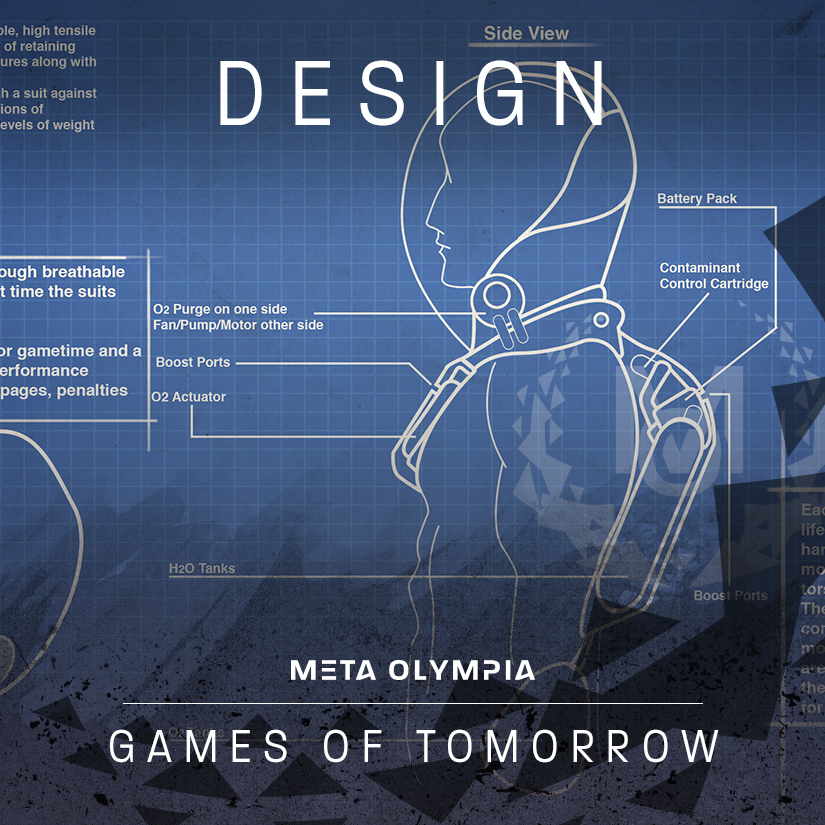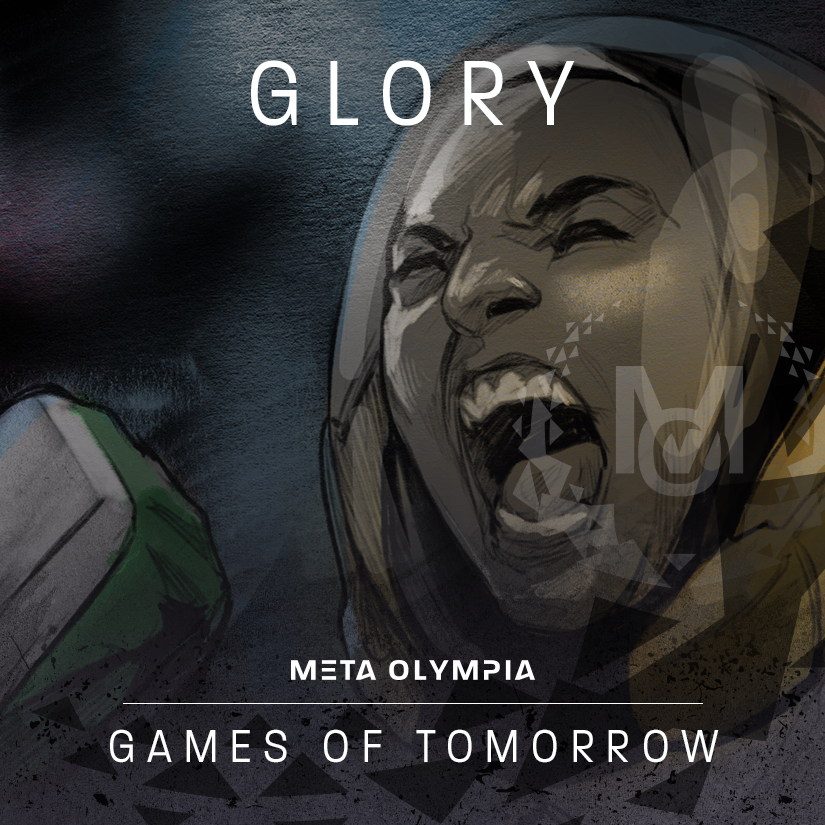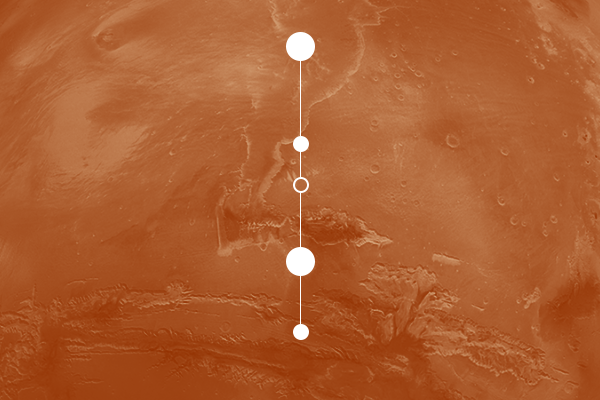Metabox 005 - Pacing is Everything
/"Com'on already! It's been, like, 5 days... Just make your move!"
Last time, we talked about direction and how our elevator pitch has helped us shift from a wide-open exploration phase to narrowing down the game on a more holistic level. Like the kid in Phillip's artwork above, it's easy to get sucked into a single turn, which can bog down the pace of an entire game. In our circumstances, we started getting drawn into rabbit-hole concepts that weren't easy to resolve, so with similar effect, it slowed down our ability to iterate because individual components became overly distracting and time consuming.
Once we all aligned that this needed to be a 'fast paced game', natural selection kicked in and obvious components started to float to the top. We didn't have to outrightly reject any of the work-in-progress ideas, but this alone gave the broad strokes to a 'whole game' that we all emotionally connected with. More importantly, after some rounds of play testing, was fun.
Turn handling.
This was, in my opinion, a fundamental characteristic that was missing in our first rounds of exploration. Not only is turn-handling important for driving the game, it lays out the possible face of the game itself and how players interact with it and each other.
How do you move? Do we need a board? What can or cannot happen during a player's turn? What role does chance play in shaping a game?
I had doodled a series of closed rings and challenged the team to explore our options.
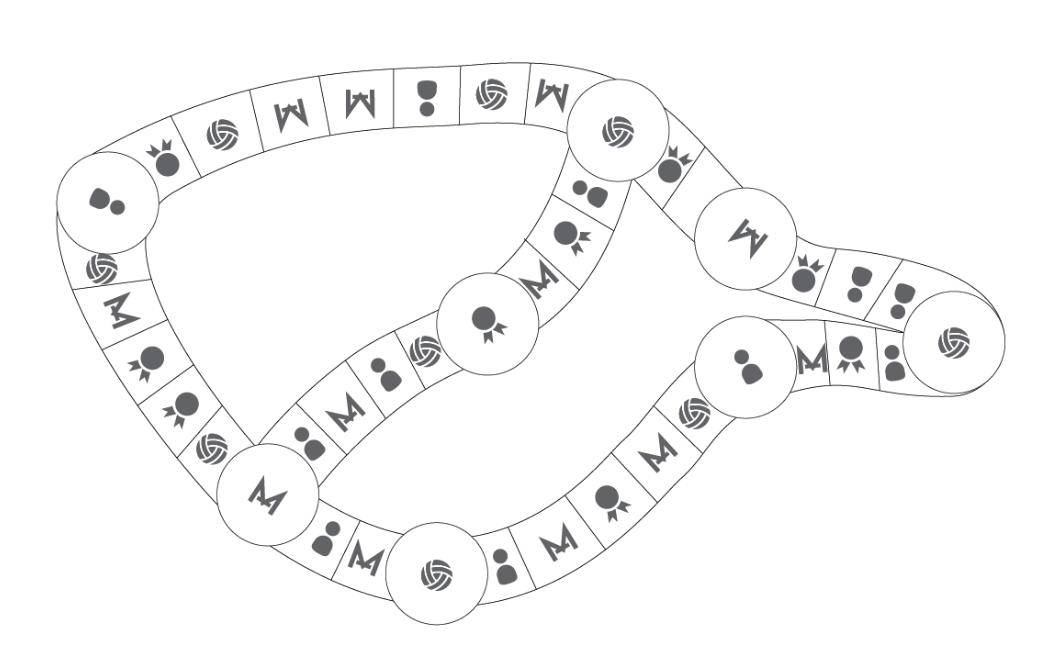
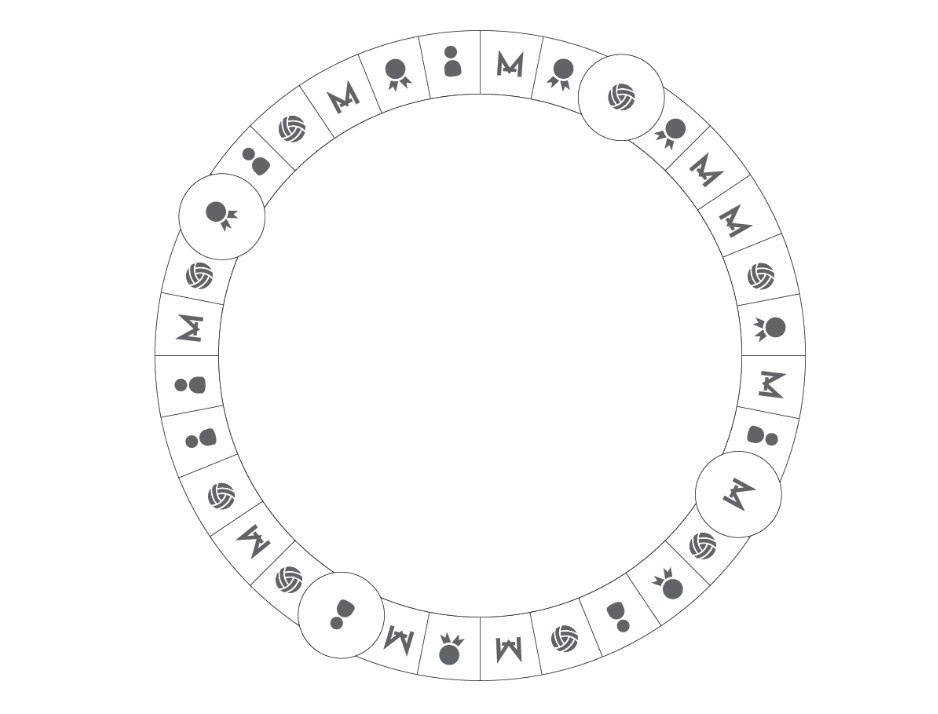
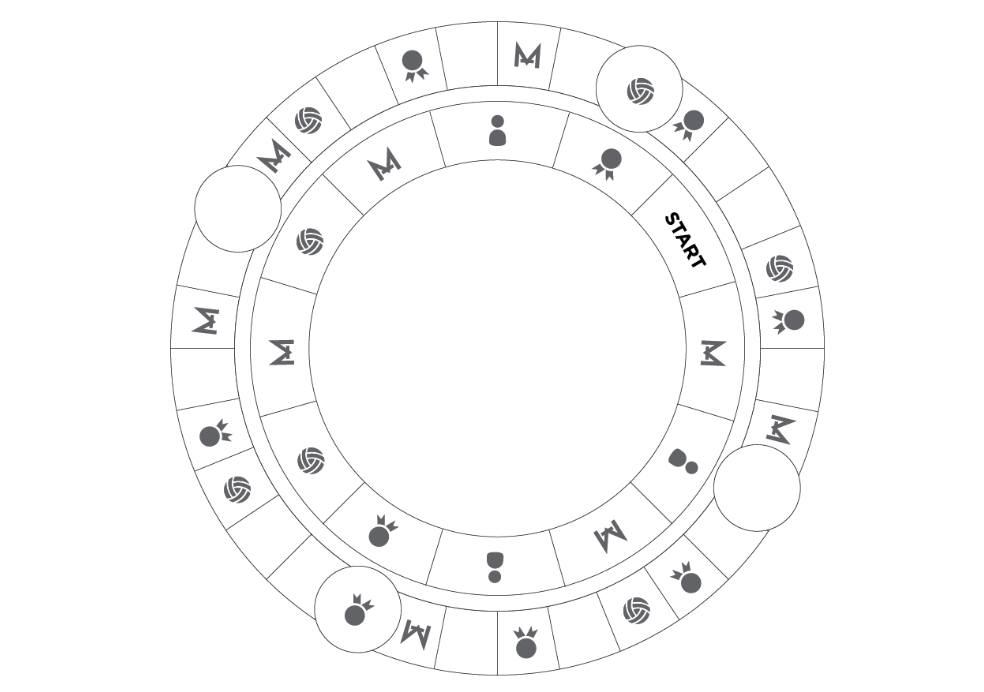
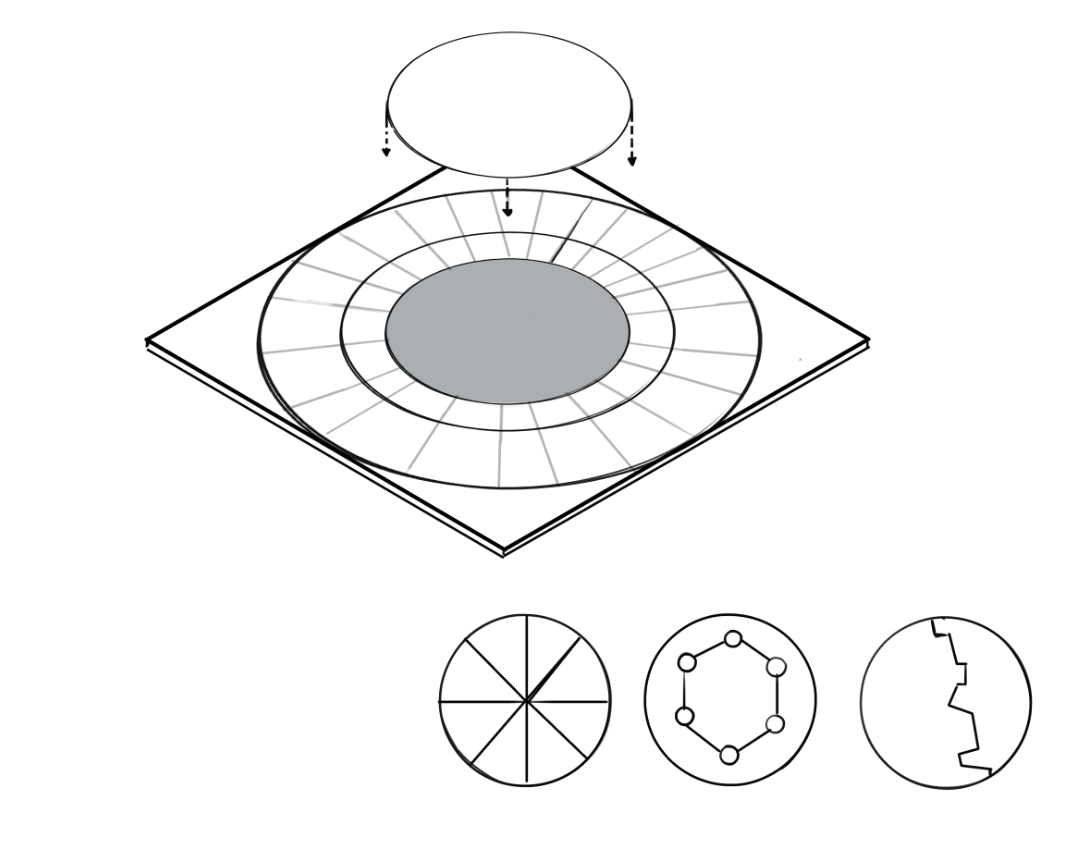
At this point, we've decided to concentrate on tiered track, two concentric circles with distinct tiles. Not only do we think it will look cool, but it offers a system to 'unlock' or shift the game into a different mode or pace. It mirrors some key concepts of Meta Olympia, particularly around discovery and delineating sports (like recreational activities versus hardcore, structured competition).
Single track worked well-enough, but just a little too constrained for what we're after.
This turn-handling/board configuration, combined with the 'Athlete' deck building component, the notion 'Action Cards' and the introduction of a credit system, suddenly gave us a framework where elements from the backstory started to organically fill in the details, like bringing in the soul of the game. It's was a pretty gratifying moment.
Of course, the devil is in the details. Our journey is far from over.
Next post, I want to share with you how we are envisioning introducing variable 'sport types' to effectively have mini-games within the game. This is a direction we hope will keep the game interesting while also creating conditions that force players to make strategic choices on getting to the end-game.
A game for the whole family!

